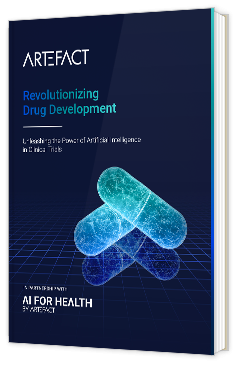

In this White Paper, we will explore concrete applications, the ecosystem involved, and the challenges and limitations of these technologies.

"In an industry where failure is the norm — with nine out of ten molecules failing in clinical trials —, AI represents a game-changing opportunity. By shaving weeks off the development timeline, AI has the potential to save pharmaceutical companies millions, accelerate breakthroughs, and bring life-saving therapies to patients faster than ever before.
After many years of focusing on drug discovery, the healthcare ecosystem understood that another shortterm promise of AI could lie in revolutionizing trial processes, enabling faster, more efficient, and datadriven trials. This has coincided with an explosion of generative-AI capabilities, emerging as a transformational technology with the potential to significantly reduce the 10-15 year and $2.3 billion cost needed to develop a new treatment.
Clinical trials are the pivotal phase of drug development. After preclinical research in laboratories and on animals to establish proof of concept and assess a product’s activity and toxicity, clinical trials on humans begin. These trials are designed to evaluate the safety of the drug (Phase I), confirm its therapeutic effectiveness for a specific disease (Phases II and III), and, finally, monitor its performance in real-world conditions (Phase IV)."